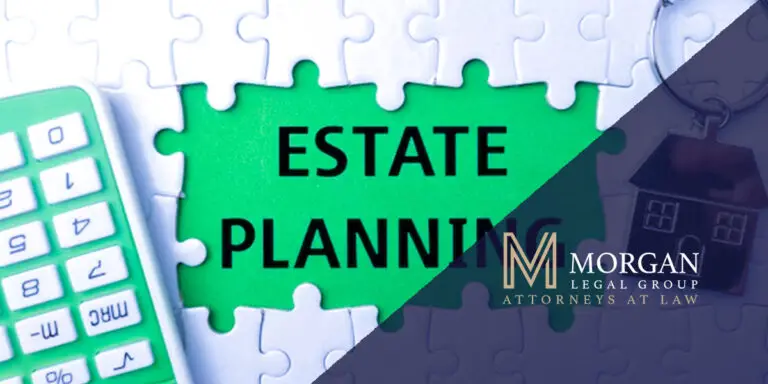What is Probate?
Probate is the term for a legal process in which a will is reviewed to determine whether it is valid and authentic. Probate also refers to the general administering of a deceased person’s will or the estate of a deceased person without a will. Probate is a legal process that administers the distribution of a deceased person’s assets. The process is overseen by a probate court. This court has the legal authority to decide matters related to wills and estates.
During probate, the court will determine whether the will is valid. They will also appoint an executor, locate and value assets, and pay the decedent’s debts out of the estate. The residue will then be distributed to the decedent’s beneficiaries and heirs.
Types of probate
1. Letter of Entitlement
In this type of probate, the individual who passed away left assets worth $20,000 or less. They also did not leave any real estate property of any kind. In these cases, those involved do not need to attend court. They will have to send in an Affidavit of Entitlement which includes information on how they have a claim to the assets they wish to receive, and information on those assets such as bank account numbers.
2. Set Aside Estate Without Administration
This kind of probate does require a court hearing. For the hearing the court needs specific details and pricing on each owned by the deceased, a list of debts and lenders, a statement by the petitioner that they do not know of any other debts other than the ones listed, and everyone who could claim a right to the property or assets. Usually the claimants are family, but they can be business partners, friends, etc. You will also need to post a notice, notifying others of the hearing’s date, time, and possibly additional information.
Step by Step Guild to Probate.
1. Acquire a Death Certificate
To start the process, you will need to obtain a death certificate. In order to acquire this evidence, you will have to register the death with your local registry office using the documentation provided by the medical services. It is likely that you will need multiple death certificates; one for each financial firm they dealt with while alive, and as photocopies are usually not accepted. Most councils will then inform government services of the death on your behalf, including the tax authorities, Driver and Vehicle Licencing Agency and the passport office. You will be provided with a reference code for this.
2. Locate the Will
Once the will has been located, this is likely to be with a solicitor for safe keeping – the listed executor must be found. This is the person who has been named by the deceased as the individual they would like to handle their estate.
3. Enlist the Services of a Qualified Probate Solicitor
Once the death certificate and will are secured, a probate solicitor can then be hired to help with the legalities of probate and estate administration.
4. Assessing the Estate
The solicitor will begin by assessing the estate to establish the assets and/or liabilities of the deceased. Depending on the extent of their investments this can vary in timescale considerably. Each financial establishment will need to be contacted for a final statement and any property must be valued.
5. Applying for a Grant of Probate
The next step will see the solicitor complete a probate application form and a document establishing the IHT liability of the estate (how much inheritance tax is owed). The solicitor will ensure these are sent off together with an original death certificate to the Probate Registry. You will be asked to swear an executor’s oath to confirm that all the details you have provided are correct. It is recommended to order at least five or six copies of the Probate applications.
Assuming HMRC accept the valuation and all details are in order, inheritance tax must then be paid before the grant of probate can be received. Inheritance may be paid from the deceased’s bank account if there is enough to cover the cost or through instalments should assets be held in property.
6. Administering the Estate
The final stage of probate is to administer the estate. This involves the solicitor distributing all of the assets that they have identified, as directed by the will. Once inheritance tax has been paid, and probate granted, this should not be delayed. A certified copy of the grant will need to be sent to the financial institution and the money will be paid into a special executor’s account. This must be separate to any existing personal accounts. Once your solicitor has received confirmation of this, they will notify you so that you can make the appropriate donations to each of the listed beneficiaries.
Importance of Probate
- While the probate process especially when lawyers are involved, only takes away from what beneficiaries get from a person’s will, the process can be stripped down and fairly simple. Not all property is required to pass through probate.
- A certain amount of property usually measured by dollar amount can be dealt with and distributed without the need for probate. If there is any significant property left over, there are simplified procedures that can quickly and easily transfer property to the intended or desired owner.
- Probate is specifically appropriate and necessary for individuals with a significant amount of property or wealth and even more needed if there are, or will likely be, those who contest the individual’s will and how the relevant assets are going to be distributed.
Get Help
Do you have more questions about Probate? Our attorneys are ready to give you all the help and answers you need. Call us today.
FAQs
What is the average time for Probate to be granted.
Typically, after death, the process will take between 6 months to a year, with 9 months being the average time for probate to complete.
Who should apply for probate?
Generally, the person who applies for probate is the executor of the estate. However, if there is not someone named in the final will, a family member may apply for letters of administration to get the right to deal with probate.
Do you always need probate?
No. If the financial value of the estate is low, or the property and assets were jointly owned, you may not need probate. However, if there is a contentious probate, then you may find that you need to go through a process.







